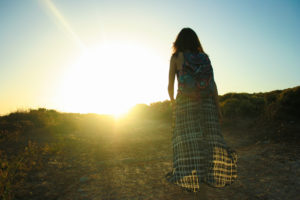You have no items in your cart. Want to get some nice things?
Go shopping
While watching the #MeAt20 avalanche on Twitter last month, I was really tempted to post a photo of myself at that age. I didn’t – inhibited, maybe, by the comments from some that it was actually a massive act of narcissism to go to the trouble of digging up a photo of oneself at twenty, then posting it on a public forum (also: doesn’t Twitter have a clause that means that they then own the rights to any image you post? Shouldn’t we definitely be, you know, really worried about that?). I just wanted to say, though, before the cultural moment moves on and I lose the chance, that I was hot too. Bright eyes, bright skin, shiny hair, a fringe that won’t quit. Maybe hot is the wrong word – beautiful is more like it, I guess. Beautiful enough that I don’t know what the hell I was thinking – when I would look at parts of myself and wish they weren’t there. Seriously, I’m looking at a photo of me at twenty-one – I’m looking in the mirror of a thirty-two-person capacity hostel room in Rio, applying eyeshadow with my finger. More striking than the fact that I used to wear eyeshadow, is the fact that I really do look great.
But, reader, I have to tell you, I was also fucking miserable, and that’s just really hard to capture on camera. So the reason I didn’t post the photo is less down to my ongoing commitment to keeping my own firmly rooted narcissism under wraps, and more an unwillingness to mislead the many tens of people who would have seen it. Posting a photo of myself – and trust me, I did have really great hair – would be a bit like handing you a packet of Jaffa Cakes and telling you there were biscuits inside: it’d only be half of the story, you know?
And I know, I know, some people managed to be young and happy at the same time. I mean, no one I know, but I’m willing to believe that some people were having a good time. I don’t want to use this as an excuse to engage in a kind of retrospective therapy, a letter to my younger self (“Dear Ansa, soon you will discover that you can bleach your top lip. Don’t be scared…”). I would, however, like to suggest that as well as engaging in collective nostalgia for how marvellous it was to be young and so much hotter than we remember, it’s also nice to remember, or say out loud at least, that young doesn’t always mean better.
By saying that society’s obsession with youth worries me, I am not, I’m aware, breaking new ground. The #MeAt20 post-along was taking place at the same time as my ongoing participation in an online readathon for War and Peace which is bringing me great joy. It’s being organized by A Public Space in the US, calling it #TolstoyTogether. It was indescribably comforting, during those first few days of lockdown, to have the collective feeling that came from taking on such a monumental, admittedly slightly ridiculous project. I didn’t think this at the time, but it is a real fuck you to the view that you really shouldn’t be putting yourself under any pressure to take on any grand projects at the moment (a view to which I subscribe, I would add). I’d like to say I went into it ironically, but I’m not sure how exactly does one read a novel ironically.
One thing that has become apparent, though, from the half of the book that I have read, is that Tolstoy had quite the male gaze. Oh, yes. And you know what fared particularly badly under that male gaze? Women who are no longer what passes for young.
Consider “maid of honor and favorite of the Empress”, hostess extraordinaire, Anna Pavlovna Scherer, who “despite her forty years, overflowed with animation and impulsiveness … The subdued smile which, though it did not suit her faded features, always played around her lips expressed, as in a spoiled child, a continual consciousness of her charming defect, which she nether wished, nor could, nor considered it necessary to correct.”
The party at this point is literally just getting started. We also have Anna Mikhaylovna, or, the “elderly lady, who with her thin careworn face was rather out of place in this brilliant society.” Ladies: might I ask you to consider how careworn your face is, relative to the brilliance of the society in which you plan to move?
More embarrassing than leaving the house with that care-worn face, is Anna Mikhaylovna’s failure to constantly bear in mind that she is no longer young:
“ ‘Do promise, do promise, Vasili!’ cried Anna Mikhaylovna as he went, with the smile of a coquettish girl, which at one time probably came naturally to her, but was not very ill-suited to her careworn face. Apparently she had forgotten her age and by force of habit employed all the old feminine arts.”
Now, I would never presume to edit Tolstoy, but does this passage not contain a lapse in logic? Why, just because it no longer becomes her, should this smile no longer come naturally to her? Tolstoy seems convinced that something fundamental separates careworn Anna Mikhaylovna and coquettish Anna Mikhaylovna. That she should forget this is, to our male observer, clearly offensive.
The category of “woman grown plain with age” features heavily in the novel: women who had once been beautiful, but who were now – to use his words – plain.
I give you, Julie Karagina:
“She was twenty-seven. After the death of her brothers she had become very wealthy. She was by now decidedly plain, but thought herself not merely as good-looking as before but even far more attractive. She was confirmed in this delusion by the fact that she had become a very wealthy heiress and also by the fact that the older she grew the less dangerous she became to men.”
Now, Julie is clearly feeling pretty good about herself. She’s come into some money and is, in modern parlance, feeling herself. But Tolstoy wants you to know that she’s wrong, that – thankfully – he’s here to tell us that she is in fact “decidedly plain”. What a delusion! Young woman gets to the end of her twenties and feels good about herself! I wonder about presumably more attractive twenty-year-old Julie Karagina – did she ever find herself applying eyeshadow in the mirror of a hostel in Rio, all the time wondering how she could be so hot but oh-so-miserable?
Even worse (or better for the purposes of my writing this piece) plainness also appears – terrifyingly – to be something one can slip into by being unhappy, or simply by failing to arrange one’s face in a particular way. Consider “the little princess”, Prince Andrew Bolkonsky’s wife, in the midst of having a bad evening: “She was much altered. She was now plain rather than pretty.”
I know, I know: here I am bringing my modern sensibility to a novel set in 19th-century Russia. Serfs are only ever referred to in an anonymous plural – something to be sold off, or moved from one estate to another. In field hospitals, wounded soldiers who are not officers are left to die on the floor. Taking issue with society women being described as plain feels … precious? But somehow it’s very painful to read. Perhaps the most depressing thing about these references to sadly deluded older women peppered throughout the prose is that I’m fairly sure that they’re beside the point. The narrative voice inflicts these blows on these women while barging past them to get to more interesting things (just how lovely are Helene’s shoulders? Please, tell me again.).
So you see this is the context in which I was watching many women I know post photos of themselves at twenty, photos where they looked happy, or cool, or had great haircuts, and perhaps explains why I slightly went off the deep end about it. If the valorization of youth is emphatically not new (cf. your man Tolstoy) what is new is the ease with which I can find a photo of my twenty- or twenty-one-year-old self and marvel at how little it says about me at that age. Looking at that photo creates an unhelpful dissonance: I look like I’m young and having a good time, but only one of those things is true. At thirty-four, I’ve worked out that the best strategy for photos is to try to look like myself, which mainly means smiling like I normally do, and avoiding the temptation to tilt anything in a direction it’s not meant to go. I appear less hot, but it’s nice to look at the photo someone has just taken of you on their phone, recognize yourself, and then never think of it again. My twenty-year-old self was a painful fourteen years away from this realization.
I’d like to end, if I may, in the classic way, with a quote from a well-known television program from the late 2000s. There is an episode of Mad Men where upon finding themselves sitting at a bar just along from two attractive young women, Roger Stirling remarks to Don Draper that when it comes to what they might refer to as the fairer sex: “Once they hit thirty, it’s like someone turns off a light.”
I would like to counter that it’s around thirty – though for many of my friends who are much smarter than me, it happened much earlier – that a light goes on. This light is the one signals that the detector for all the bullshit in the world that gets flung at women about how important it is to be young, and then once you aren’t, how you must do the decent thing and disappear, is firmly switched on. I for one would not be without it.





